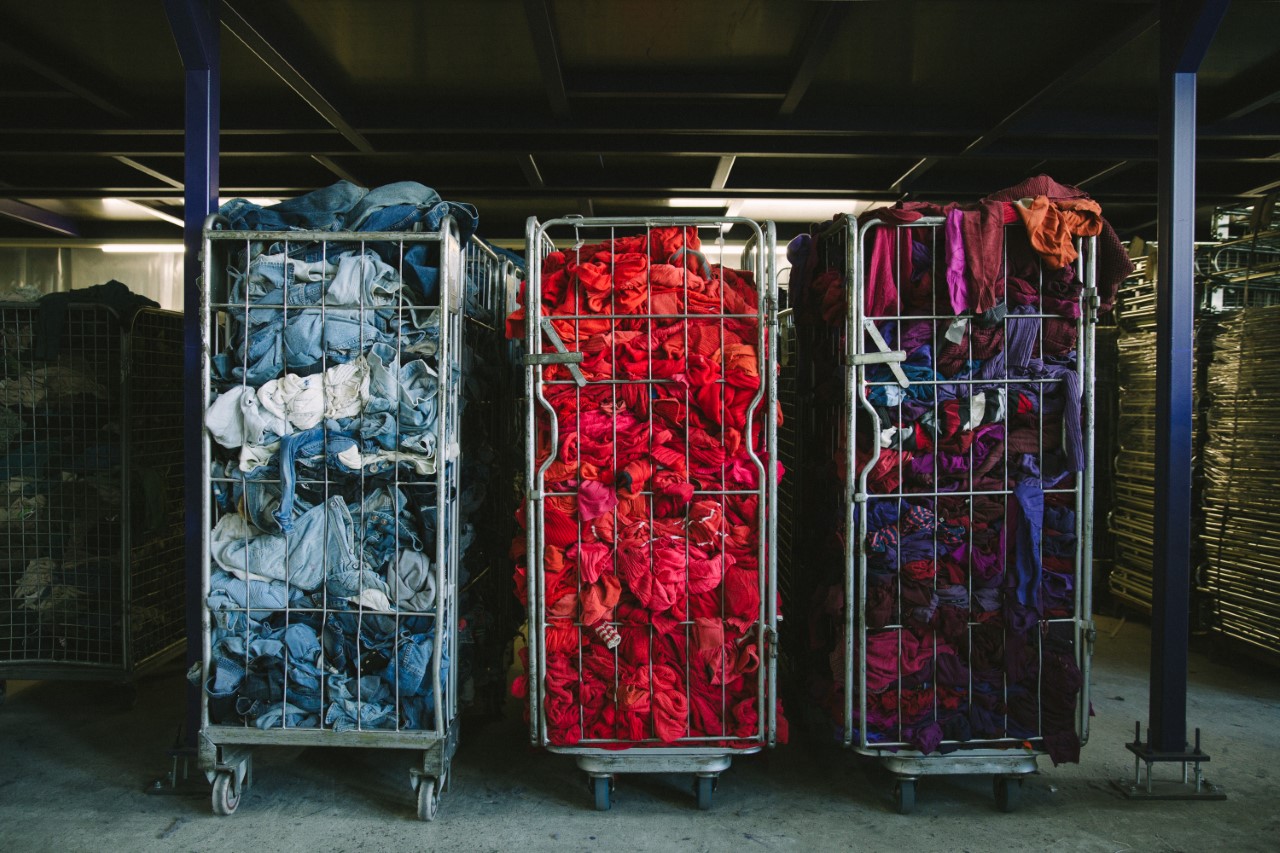A technical innovation to end unsustainable labor practice
In 2006 and 2008, Hans Bon, director of the Dutch sorting company Wieland Textiles, had some shocking experiences, which with hind sight appeared to be the first sparks in the development of Fibersort. While meeting a client in India, Hans visited a few recycling sites in Panipath where laborers, mostly children, were working for 10 to 12 hours per day under terrible conditions to sort enormous piles of mixed rags from the West with their bare hands. Such sites, where huge volumes of discarded clothes from Europe and the United States are sorted manually to deliver cheap feedstocks to the textile industry, still exist today. The pictures of the harsh working conditions motivated Hans to start looking for a technical innovation that could make this unsustainable work redundant.

Against this background, Wieland Textiles and Frankenhuis, a Dutch textile recycling company, in 2009 started Textiles for Textiles (T4T), a R&D-project to develop an industrial scale machine for automated sorting textiles using the Near-Infrared (NIR) technology supplied by the Laser Zentrum Hannover (LZH). Frankenhuis was already cooperating for some time with LZH to evaluate their NIR-technology for the identification of fibers and dye/finish of textile raw materials. The device was unveiled at a conference called Closing the Loop in Amsterdam in November 2012, but the reality was that the LZH scanner was not working properly.
Wieland therefore asked Valvan Baling Systems to develop an alternative solution. Valvan started evaluating different suppliers of scanners and started building its own database and analysis software to enable the sorting application, under the brand name Fibersort. In 2016, Wieland and Valvan joined forces with several partners to launch a EU-funded project under the name ‘Fibersort’, in which the partners try to close the textile-to-textile loop, including further development of the sorting application. It was within the framework of this Interreg-North-West Europe Fibersort project, on the 14th of March 2018 in Wormerveer, that Wieland and Valvan were able to present Fibersort as a proven NIR-technology for the automated sorting of post-consumer textiles.
